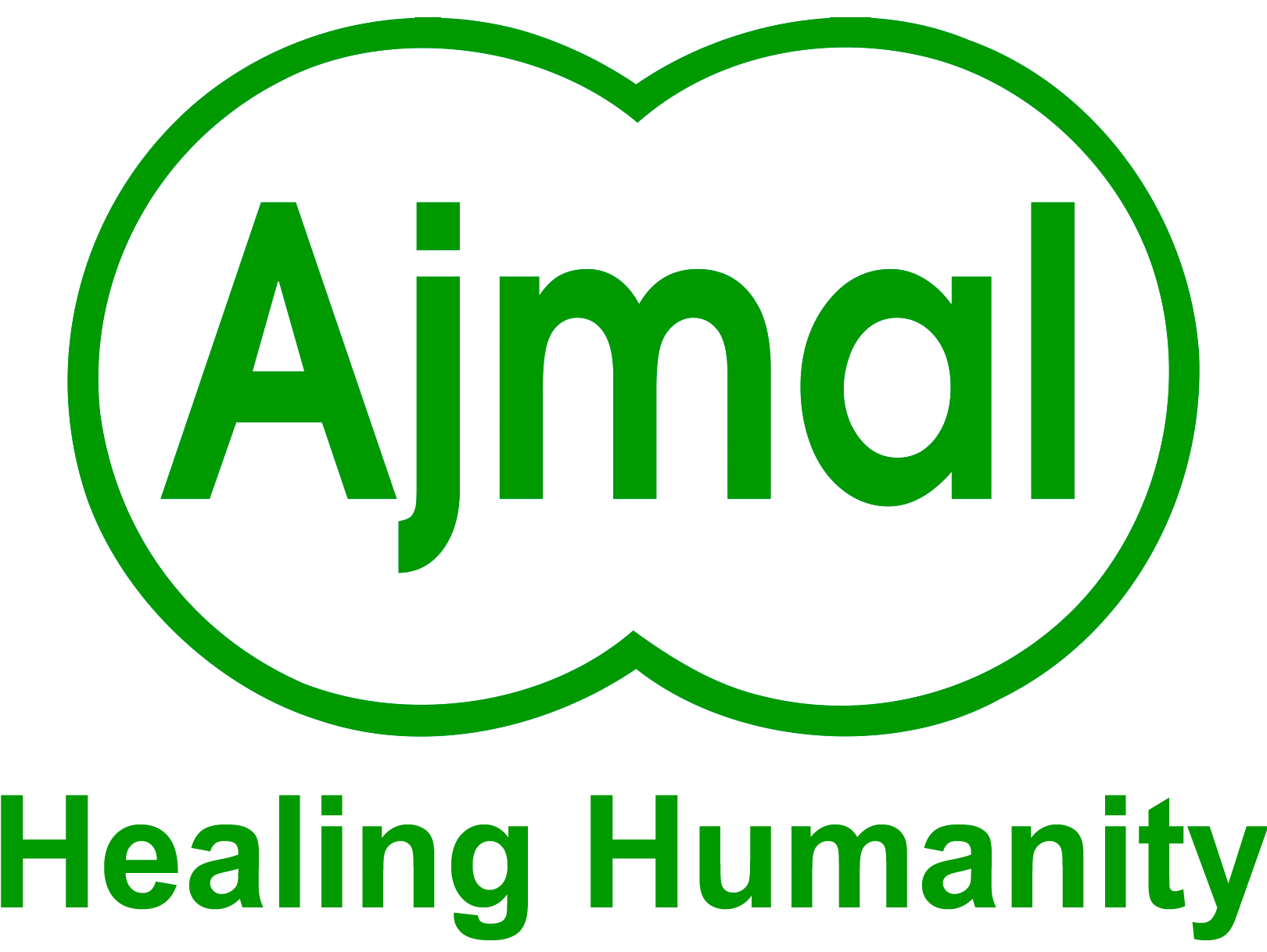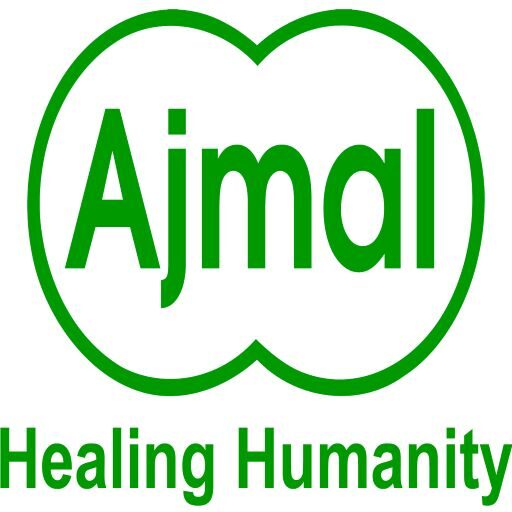Munir Nabi Khan
Director Dawakhana Hakim Ajmal Khan (Pvt) Ltd
President National Council for Tibb
PHARMACY IN UNANI SYSTEM OF MEDICINE
“A thing that is modern is not necessarily good, because it is modern; and a thing that is old is not necessarily bad, because it is old. The converse is also true….. What then should our approach be? Obviously our approach should be one of trying to profit by past experience and integrating with the best in other system.”
Pharmacy has been defined as the art and science of preparing and dispensing drug used for prevention of diseases. Records extant from ancient Egypt, Assyria, China and India show that the pharmacy has been intimately connected with the medicine and with the natural sciences,
The rapid advances in modern medical and pharmaceutical sciences have greatly influenced allopathic medicine. Meanwhile the Unani system of medicine in different regions of the world could not take much advantage of the march of science. Whereas, modern medicine can be traced back to the findings of ancient Egyptians and the Physicians of Unani system of Medicine like Hippocrates(460-337 BC), Dioscorides (1st Century AD), Galen (131-210 AD), Geber(702-765 AD), Rhazes(850-925 AD), Avicenna(980-1037 AD) and many others. In fact, if one were to recount the achievements of Unani Physician in the field of Pharmacy, it would require volumes and volumes. But, concerned as we are, with medical profession, we shall confine ourselves to make some remarks about contribution of Unani Physician in field of Pharmacy. The art of preparing medicine was undoubtly one of major fields of accomplishments.
In 2500 BC the Pharmacists of Egypt had through knowledge of the various methods of preparing decoctions, extract, solutions, liniments, ointments pills, etc. The methods of preparation of medicaments are astonishingly quite similar to those of today.
Hippocrates (460-337 BC) prepared his own medicine, he knew about the effect of several drugs that are still used by modern doctors, like opium and its extract as a pain killer, belladonna in small dose as relieving stomach upsets and in larger doses can be deadly poison. In the writing if Hippocrates nearly 400 substances are named as medicine.
Cornelius Celsus (1st century AD) was an important writer on pharmaceuticals. One of Celsus prescriptions for preventing the decay of theet was called “SORRY”. It consisted of poppy seeds, pepper and copper sulphate made into a paste with galbanum.
Dioscorides (1st century AD) was an early Unani (Greek) physician of Rome who was an authority on material medica and pharmacy for many centuries. Dioscorides work “De Materia Medica” remained the basis of all books on material medica until 17 century in Europe.
Galen (131-210 AD), another Unani (Greek) physician of Roman period, gave a distinct identity to the art of pharmacy. An elaborate system of poly pharmacy was introduces by Galen. He wrote many books in which he mentioned directions for making hundred of medicines prepared from plant. In modern medicine a drug which is extracted from plant is still called a ‘Galenical”. Galen’s ‘De composition medicament rum’ is the first organized medical formulary in the history of pharmacy.
Thus for nearly 500 years, great progress was made by the Greeks (Unani) in the field of pharmacy. From fifth to fifteen century whatever progress was made in the field of pharmacy was made in the field of pharmacy was due to Arab physicians. Studies in the fields of pharmacology, pharmacognosy and pharmaceutical sciences were brought to such a high level by the Arab physicians and pharmacists for the ninth to the thirteenth centuries that their Materia medica and most of the pharmaceutical ideas remained supreme for many centuries. In fact the Arab malterria medica and pharmaceuticals are still used in the practice of Unani System of medicine in much of the near East, North Africa, India, Pakistan, Bangladesh and other parts of Asia.
Many Arab physicians wrote books containing pharmaceutical process and methods. These books were called Al-Qarabadeen (medical formulary).
Sabur bin Shal a great physician and pharmacist complied a book of pharmaceutical formulas “Al Qarabadeen-e-Kabir” (Great Pharmacopoeia).
Mesve (777-857 AD) was physician to the Caliph Haroon-al- Rashid. His Pharmaceutical formulary translates from Arabic into Latin served as a model for the first London Pharmacopoeia.
Ibn al Bayan wrote a well-know formulary “All- Dustur-al Bimaristan-fi-al-adviyah-wa” (Common hospital procedure with compound drugs).
The great Arab Pharmacist, however, was that of Ibn-al-Bayan (1248 AD).His comprehensive book Al-jami-li-Mufradat-al-adwiyah-wa-al-aghhziyah embodied all Unani and Arab literature on botany and Materia medica as well as the author’s wide experience and research.
During the middle Ages Avicenna’s (980-1035 AD) Al- Qanoon-fi-Tibb (Canon) was by far the most popular book on medicine and it was most frequently quoted by later writers. Avicenna was the first in the history of pharmacy who introduce sugar, silver and gold coating of the pills.
A great number of Arabic works in medical and pharmaceutical science were rendered into Latin at the first and thus enriched the pharmaceutical knowledge of the west during the later middle Ages. The name and works of such Arabian authors as Masawayh (857 AD) Al- Kundi (873 AD), Jabir-bin-Hayyan (756 AD), Rhazes (925 AD) , Abu-Nasar-Al-Farabi (939 AD), Avicenna (980-1037 AD), become widely know and circulated.
For pharmacy, the Arabic influence was important also because there were three classes of apothecaries,(a) qualified pharmacist ( Al Saydalani) as a separate functionary,(b) regular apothecaries who were called al- Attarin (druggists),(c)drug peddlers they collected medicinal herbs and minerals and traded them in the market.
Pharmacies, as separate places where drug were compounded and sold, were first established during the early Arab period (8th and 9th century).
“The science of pharmacy” says Elgood, was nowhere more highly developed or more exact then in the city of Baghdad.
The concept of ‘Drug Act’ and ‘Drug Inspector’ was first introduced by Great Caliph Haroon Rashid of Baghdad. The owners of drug stores (Attar) were under the watchful eye of drug inspectors’ Mohtasib’ whose duty was to see only such persons who had knowledge and experience of drug dispensed them. Not only did the ‘drug inspector’ inspect the drug, he had also the right to inspect the method of preparation. He was specially enjoined to see that the vessels, in which the excipients, such as barely water and rose water, were prepared, were kept clean and sourced. Old and smelly jars were destroyed by order of the Mohtasib. Tinning was to be renewed every three months.
Thus, pharmacy reflected a general elaborative tendency of Arabic intellectualism.
In Indo-Pak subcontinent, during the reign of Babur, the founder of Mughal dynasty, Mir Nizamuddin-al-Khalifa and abu’l Baqa was great physician and pharmacist’s .Humayun invited Khawaja Khawind a noted physician from Shiraz. Akbar sends many Hakims all over India and paid attention to the profession of pharmacy. Hakim Ali Gilani invented the formula of Raguhan-i-Deodar which is also used at present in Unani System of Medicine.
During the Mughal days the nobility tended to refrain from bitter medicines, hence palatable medicine the ‘Khamiras’ came into vague, which are characterized both by the palatability and attractive odour.
During the British rule, the organized efforts of the famous house (Sharif Manzil) of Hakim Sharif Khan of Delhi and his successors a shining example of courage and sacrifice for the up-litt and rejuvenation of the then decaying and disregarded Unani System. Masih-ul-Mulk Hakim Ajmal khan, whose name and work will go down in history established a pharmacy for the scientific preparation of indigenous medicine.
Munir Nabi Khan
Director Dawakhana Hakim Ajmal Khan (Pvt) Ltd
155-M Quaid-e-Azam Industrial Estate, Lahore, Pakistan.


